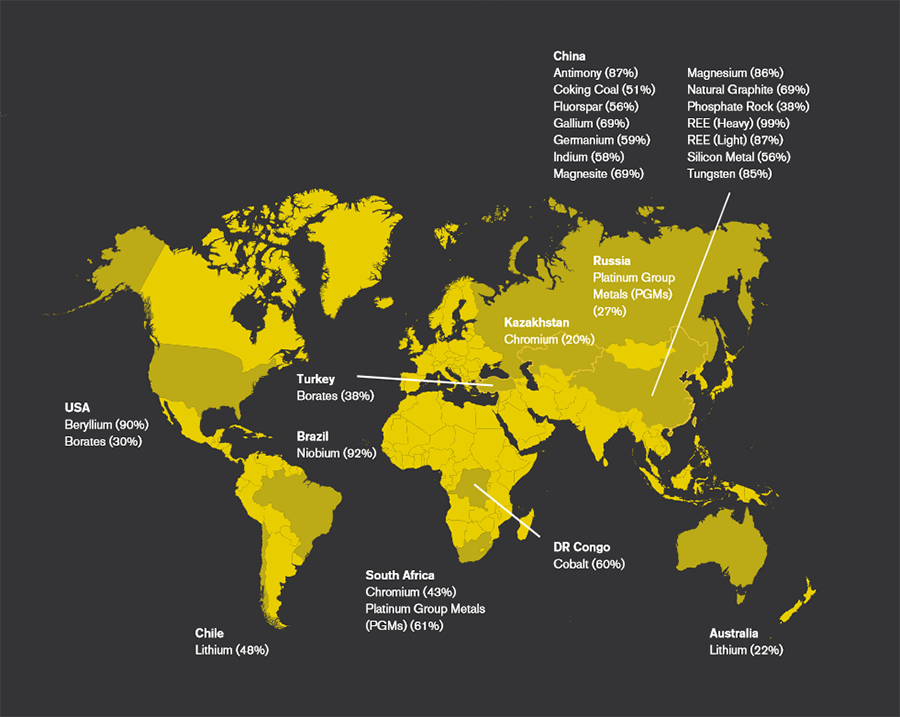In recent years, the world’s supply of rare earth, platinum group metals, and other strategically important materials have come under increasing pressure as global demand continues to rise.

These elements are used to create materials that are strategically important for many industrial sectors and form an integral part of many high-tech and clean energy technologies such as smartphones and wind turbines.
Despite often being present in only relatively small quantities, they play a huge role in the functionality of the application in which they are embedded and have very particular properties that often make them difficult to replace by other less strategic elements.
Supply restrictions for critical elements occur for a number of reasons including: low natural abundance in the earth’s crust, deliberate restrictions on supply from one or more dominant producer, low recycling rates, rapid expansion of technologies that use these elements, or the fact that often the processing of materials containing them is environmentally damaging.
A strategic response is required
Given the huge importance of critical materials to many of the UK’s largest industrial sectors, action is urgently required to address these shortages.
Strategic and critical elements form an integral part of many high-tech and clean energy technologies. However, critical materials are often only present in relatively small quantities despite playing a huge role in the functionality of the application in which they are embedded.
Recycling of these materials is often very challenging due to the small quantities involved, and therefore extremely efficient separation processes are required to remove these materials from the waste streams. This is one of the central pillars of the new centre.
The EU, US and Japan have all created critical materials roadmaps to highlight at risk elements and materials, which are also of high economic and strategic importance.
As the first UK centre in Strategic Elements and Critical Materials, our scientists and researchers at the Birmingham Energy Institute, are leading the way in working on the solutions to these challenges.
Priority areas
The Birmingham Centre for Strategic Elements and Critical Materials will work to mitigate the impact of criticality through approaches such as:
- REPLACEMENT of critical materials or technologies with more abundant and sustainable alternatives
- REGULATION to avoid shortages and environmentally damaging processes
- REDUCTION of the use of certain elements and materials by increasing the efficiency of technologies and manufacturing processes
- RECOVERY of materials, including re-use, recycling and the development of urban mining and entirely new industrial ecologies